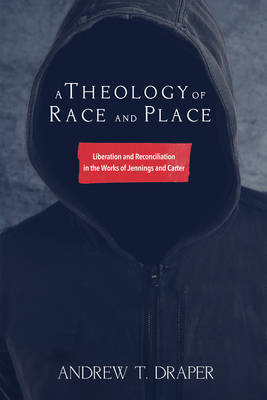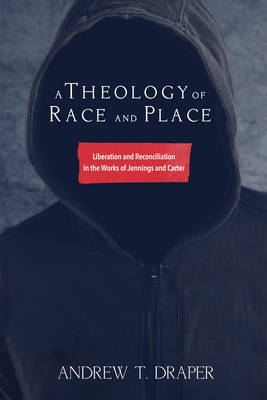
Bedankt voor het vertrouwen het afgelopen jaar! Om jou te bedanken bieden we GRATIS verzending (in België) aan op alles gedurende de hele maand januari.
- Afhalen na 1 uur in een winkel met voorraad
- In januari gratis thuislevering in België
- Ruim aanbod met 7 miljoen producten
Bedankt voor het vertrouwen het afgelopen jaar! Om jou te bedanken bieden we GRATIS verzending (in België) aan op alles gedurende de hele maand januari.
- Afhalen na 1 uur in een winkel met voorraad
- In januari gratis thuislevering in België
- Ruim aanbod met 7 miljoen producten
Zoeken
A Theology of Race and Place
Liberation and Reconciliation in the Works of Jennings and Carter
Andrew Thomas Draper
Hardcover | Engels
€ 95,95
+ 191 punten
Uitvoering
Omschrijving
In a world marked by the effects of colonial displacements, slavery's auction block, and the modern observatory stance, can Christian theology adequately imagine racial reconciliation? What factors have created our society's racialized optic--a view by which nonwhite bodies are objectified, marginalized, and destroyed--and how might such a gaze be resisted? Is there hope for a church and academy marked by difference rather than assimilation? This book pursues these questions by surveying the works of Willie James Jennings and J. Kameron Carter, who investigate the genesis of the racial imagination to suggest a new path forward for Christian theology. Jennings and Carter both mount critiques of popular contemporary ways of theologically imagining Christian identity as a return to an ethic of virtue. Through fresh reads of both the "tradition" and liberation theology, these scholars point to the particular Jewish flesh of Jesus Christ as the ground for a new body politic. By drawing on a vast array of biblical, theological, historical, and sociological resources, including communal experiments in radical joining, A Theology of Race and Place builds upon their theological race theory by offering an ecclesiology of joining that resists the aesthetic hegemony of whiteness.
Specificaties
Betrokkenen
- Auteur(s):
- Uitgeverij:
Inhoud
- Aantal bladzijden:
- 346
- Taal:
- Engels
Eigenschappen
- Productcode (EAN):
- 9781498280846
- Verschijningsdatum:
- 26/08/2016
- Uitvoering:
- Hardcover
- Formaat:
- Genaaid
- Afmetingen:
- 152 mm x 229 mm
- Gewicht:
- 635 g

Alleen bij Standaard Boekhandel
+ 191 punten op je klantenkaart van Standaard Boekhandel
Beoordelingen
We publiceren alleen reviews die voldoen aan de voorwaarden voor reviews. Bekijk onze voorwaarden voor reviews.









